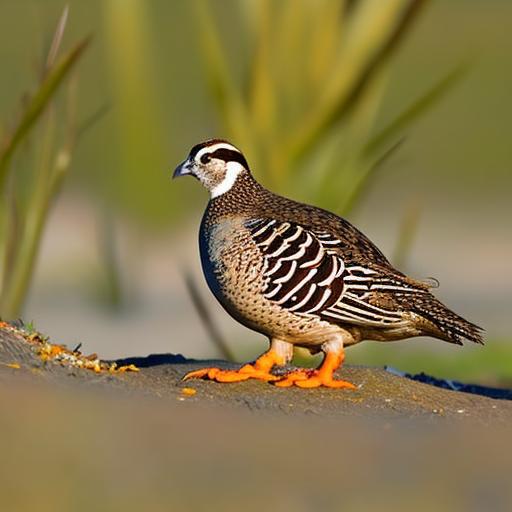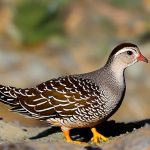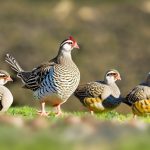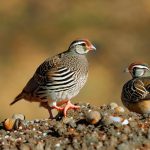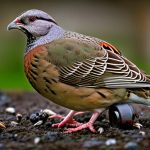Jumbo Pharaoh Quail, also known as Coturnix coturnix, are a popular breed of quail that are raised for their meat and eggs. They are a hardy and adaptable bird that can thrive in a variety of environments, making them an ideal choice for both small-scale and commercial quail farming operations. Jumbo Pharaoh Quail are known for their rapid growth and high egg production, making them a valuable addition to any poultry farm.
These quail are native to Europe, Asia, and Africa, and have been domesticated for thousands of years. They are a popular choice for farmers and homesteaders due to their small size, low maintenance requirements, and ability to thrive in confinement. Jumbo Pharaoh Quail are also known for their gentle disposition, making them easy to handle and work with. Whether you are looking to raise quail for meat or eggs, Jumbo Pharaoh Quail are an excellent choice for any poultry operation.
Key Takeaways
- Jumbo Pharaoh Quail are a popular breed of quail known for their large size and high egg production.
- When housing Jumbo Pharaoh Quail, it is important to provide a spacious and secure enclosure with proper ventilation and protection from predators.
- Feeding Jumbo Pharaoh Quail a balanced diet that includes high-quality quail feed and access to fresh water is essential for their health and productivity.
- Regular health check-ups and access to veterinary care are important for maintaining the well-being of Jumbo Pharaoh Quail.
- Breeding Jumbo Pharaoh Quail requires careful monitoring of nesting boxes, temperature control, and proper socialization to ensure successful reproduction.
Housing and Enclosure Requirements
When it comes to housing Jumbo Pharaoh Quail, it is important to provide them with a safe and secure enclosure that meets their specific needs. Quail are ground-dwelling birds that require ample space to move around and forage, so it is important to provide them with a spacious enclosure. A good rule of thumb is to provide at least 1 square foot of space per bird, although more space is always better. The enclosure should also be predator-proof, with sturdy walls and a secure roof to protect the quail from potential threats.
In addition to space and security, Jumbo Pharaoh Quail also require a clean and dry environment. The enclosure should be kept clean and free of debris, with regular cleaning and maintenance to prevent the buildup of waste and bacteria. Providing a dry substrate, such as sand or wood shavings, can help to absorb moisture and keep the enclosure clean and comfortable for the quail. It is also important to provide adequate ventilation to prevent the buildup of ammonia and other harmful gases. By providing a spacious, secure, clean, and well-ventilated enclosure, you can ensure that your Jumbo Pharaoh Quail have a safe and comfortable living environment.
Feeding and Nutrition
Proper nutrition is essential for the health and well-being of Jumbo Pharaoh Quail. These birds require a balanced diet that provides them with the necessary nutrients to support their growth, egg production, and overall health. A good quality commercial quail feed is an excellent choice for providing the essential nutrients that quail need. Look for a feed that is specifically formulated for quail and provides the right balance of protein, vitamins, and minerals.
In addition to commercial feed, Jumbo Pharaoh Quail can also benefit from supplemental foods such as fresh fruits and vegetables, mealworms, and greens. These treats can provide additional nutrients and enrichment for the quail, as well as help to prevent boredom and encourage natural foraging behaviors. It is important to provide fresh, clean water at all times, as quail can quickly become dehydrated if they do not have access to an adequate water source.
It is also important to monitor the quail’s food intake and adjust their diet as needed based on their age, activity level, and reproductive status. By providing a balanced diet that meets the nutritional needs of Jumbo Pharaoh Quail, you can help to ensure that they remain healthy and productive.
Health and Veterinary Care
Maintaining the health of your Jumbo Pharaoh Quail is essential for their well-being and productivity. Regular health checks and preventative care can help to identify and address any potential health issues before they become serious problems. It is important to work with a veterinarian who has experience with poultry to develop a health care plan for your quail.
In addition to regular health checks, it is important to provide a clean and sanitary living environment for your quail. This includes regular cleaning of the enclosure, providing clean water and feed, and monitoring for signs of illness or injury. It is also important to quarantine any new birds before introducing them to your existing flock to prevent the spread of disease.
Common health issues in quail include respiratory infections, parasites, and injuries. It is important to be vigilant for any signs of illness or distress in your quail, such as sneezing, coughing, lethargy, or changes in appetite or behavior. If you notice any signs of illness or injury, it is important to seek veterinary care as soon as possible to prevent the spread of disease and ensure the health of your quail.
Breeding and Reproduction
Breeding Jumbo Pharaoh Quail can be a rewarding experience for poultry enthusiasts. These birds are prolific breeders, with hens capable of laying up to 300 eggs per year under optimal conditions. To encourage successful breeding and reproduction, it is important to provide a suitable breeding environment for your quail.
A separate breeding enclosure can help to provide the privacy and security that quail need for successful breeding. This enclosure should include nesting boxes or areas where the hens can lay their eggs in peace. It is important to provide a balanced diet that meets the nutritional needs of breeding quail, as well as plenty of clean water and access to natural light.
Once the eggs are laid, they can be collected and placed in an incubator for hatching. Quail eggs typically hatch within 17-18 days, at which point the chicks can be moved to a brooder for warmth and protection. By providing a suitable breeding environment and proper care for the eggs and chicks, you can help to ensure successful breeding and reproduction of your Jumbo Pharaoh Quail.
Handling and Socialization
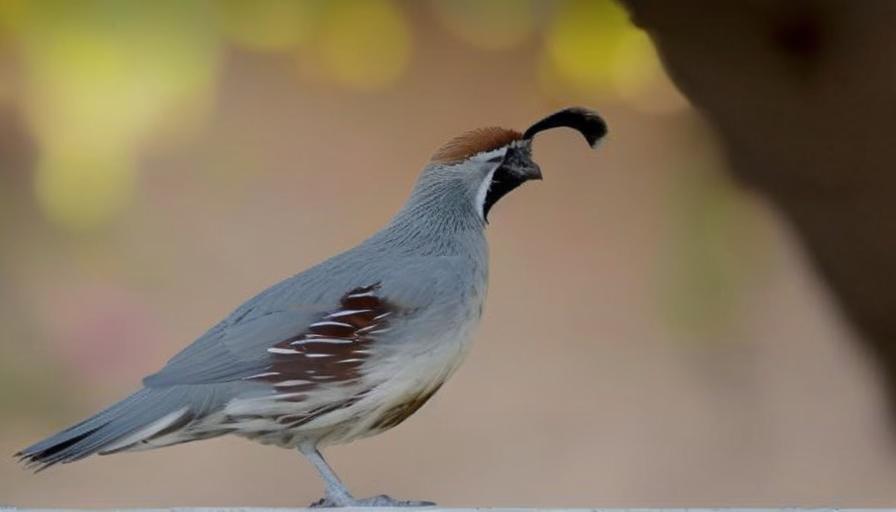
Proper handling and socialization are important for the well-being of Jumbo Pharaoh Quail. These birds are naturally social animals that thrive in the company of their own kind. It is important to provide plenty of space for your quail to move around and interact with each other, as well as opportunities for natural behaviors such as dust bathing and foraging.
When handling your quail, it is important to be gentle and calm to avoid causing unnecessary stress or injury. It is best to approach quail slowly and quietly, allowing them to become accustomed to your presence before attempting to handle them. When picking up a quail, it is important to support their body properly to prevent injury or escape.
Socializing your quail can also help to reduce stress and aggression within the flock. Providing plenty of space, enrichment, and opportunities for natural behaviors can help to keep your quail happy and healthy. By providing a safe and enriching environment for your quail, you can help them to thrive and enjoy a high quality of life.
In conclusion, Jumbo Pharaoh Quail are a valuable addition to any poultry farm or homestead. These hardy birds are known for their rapid growth, high egg production, and gentle disposition, making them an excellent choice for both small-scale and commercial quail farming operations. By providing a suitable enclosure, balanced diet, proper veterinary care, and opportunities for breeding, handling, and socialization, you can help ensure the health and well-being of your Jumbo Pharaoh Quail.
For those interested in raising Jumbo Pharaoh Quail, there are many resources available to provide guidance on all aspects of quail care and management. Books, online forums, local agricultural extension offices, and experienced breeders can all provide valuable information on raising healthy and productive quail. With proper care and attention, Jumbo Pharaoh Quail can provide a valuable source of meat and eggs while also adding beauty and interest to any poultry operation.
If you’re interested in keeping jumbo Pharaoh quail, you may also want to learn about the best practices for breeding guinea fowl. Poultry Wizard has a helpful article on when guinea fowl lay eggs, which can provide valuable insights into raising and breeding these unique birds.
FAQs
What are jumbo Pharaoh quail?
Jumbo Pharaoh quail are a breed of domesticated quail known for their large size and productivity. They are often raised for their meat and eggs.
How do you keep jumbo Pharaoh quail?
To keep jumbo Pharaoh quail, you will need a suitable enclosure with proper ventilation, bedding, and access to food and water. It’s important to provide a balanced diet and maintain a clean environment for their health and well-being.
What do jumbo Pharaoh quail eat?
Jumbo Pharaoh quail eat a diet consisting of commercial quail feed, supplemented with fresh greens, fruits, and vegetables. They also require access to grit for digestion.
What are the housing requirements for jumbo Pharaoh quail?
Jumbo Pharaoh quail require a secure enclosure with adequate space for movement, nesting boxes, and protection from predators. The enclosure should also have proper ventilation and lighting.
How do you breed jumbo Pharaoh quail?
Breeding jumbo Pharaoh quail involves providing a suitable environment for mating, collecting and incubating the eggs, and caring for the chicks once they hatch. It’s important to ensure proper nutrition and a stress-free environment for successful breeding.
What are the common health issues for jumbo Pharaoh quail?
Common health issues for jumbo Pharaoh quail include respiratory infections, parasites, and injuries. It’s important to monitor their health, provide a clean environment, and seek veterinary care when necessary.
Meet Walter, the feathered-friend fanatic of Florida! Nestled in the sunshine state, Walter struts through life with his feathered companions, clucking his way to happiness. With a coop that’s fancier than a five-star hotel, he’s the Don Juan of the chicken world. When he’s not teaching his hens to do the cha-cha, you’ll find him in a heated debate with his prized rooster, Sir Clucks-a-Lot. Walter’s poultry passion is no yolk; he’s the sunny-side-up guy you never knew you needed in your flock of friends!

